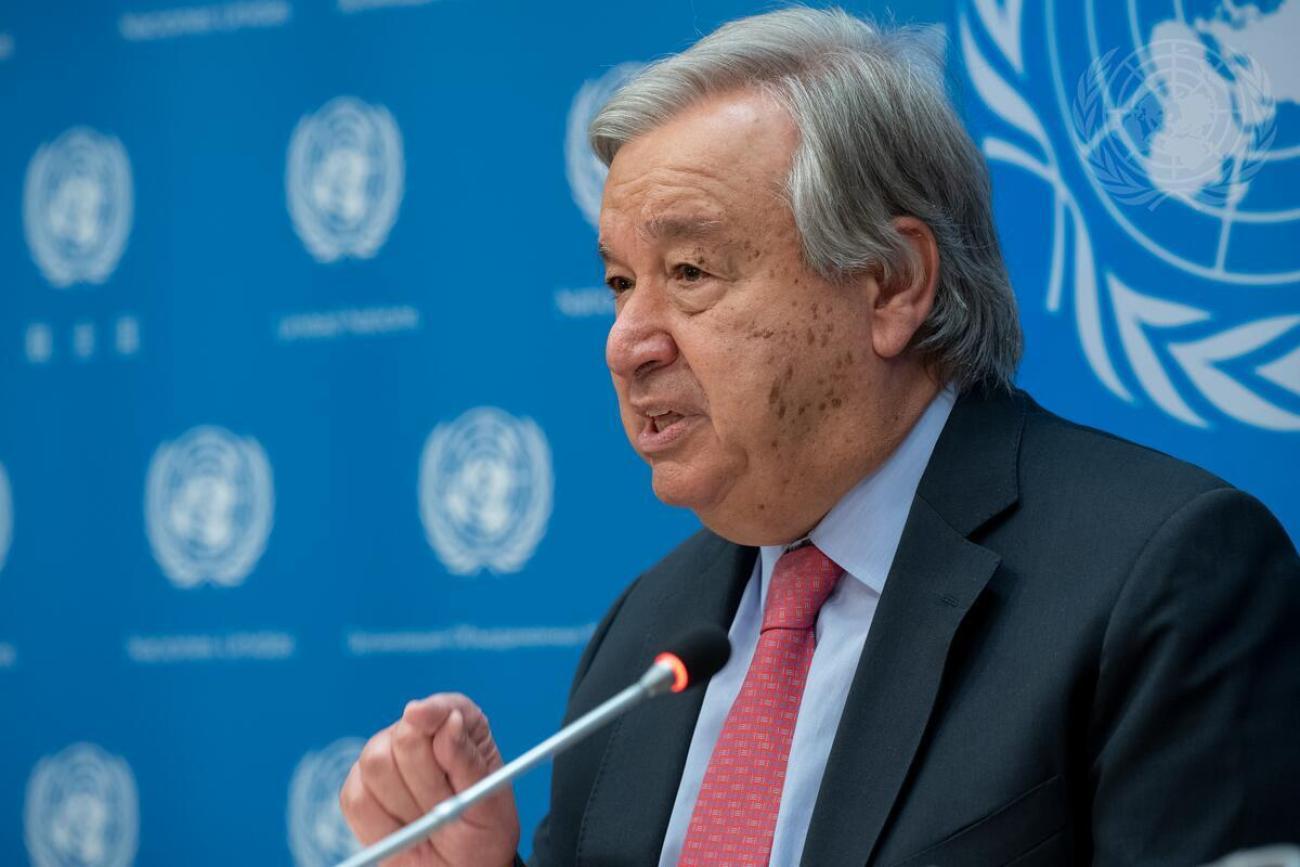UN ‘determined’ to end backsliding on development goals, Guterres tells ECOSOC

Despite going into reverse on more than 30 per cent of the Sustainable Development Goals, it’s not too late to “turn the tide”, said the Secretary-General.
António Guterres was addressing the first high stakes meeting of the UN Economic and Social Council’s (ECOSOC) Operational Activities for Development Segment at UN Headquarters in New York, which he described as “an important first step” towards providing accelerated action for reaching the 17 ambitious SDGs, by the 2030 deadline.
‘Weak and insufficient’
He said among the “fundamental goals” heading in the wrong direction, was that of reducing poverty and hunger. “Progress on another 50 per cent is weak and insufficient”, he added.
He outlined a raft of UN initiatives – from the emergency SDG Stimulus measure to scale-up financing for countries in need, to the Black Sea Initiative to aid countries suffering the effects of the Ukraine war – which he said were all serving the wider aim of getting the SDGs back on track.
Mr. Guterres praised the effectiveness of UN Country Teams worldwide, which were leading the Organization’s efforts for sustainable, inclusive development.
“Nobody could have foreseen, when the development reforms were put in place, that Country Teams would face such a challenging global environment.
“Despite that, four years on, the reforms have succeeded…Resident Coordinators are bringing United Nations entities together in support of countries’ priorities for the implementation of the 2030 Agenda”, he said.
‘Financing abyss’ for poorer nations
But when it comes to funding the Agenda, he said investment has fallen short.
“Many developing countries simply cannot afford to invest in the SDGs because they face a financing abyss”, he said.
The funding gap stood at $2.5 trillion before the COVID pandemic, but now stands at $4.2 trillion, according to the OECD.
Impressing on Member States the need for an SDG Stimulus of at least $500 billion a year, the UN chief also noted that the UN’s own Resident Coordinator system was “still chronically underfunded.”
Arms vs development
Given that the relatively “tiny investment” of $85 billion would underpin the stability of the UN development system, he contrasted this, with the more than $2 trillion per year spent on military budgets.
“It is simply not credible to pledge support for peace, if they are not prepared to invest a tiny fraction of this amount in sustainable development – the greatest prevention tool we have”, said the UN chief.
In conclusion, he said September’s SDG Summit “must be a moment of unity to provide a renewed impetus and accelerated action for achieving the SDGs”, that delivers concrete progress, and “a clear commitment to overhaul the current international financial architecture.”
That call was echoed by the Deputy Secretary-General, Amina Mohammed, who said this was "no ordinary year" for the battle to meet the SDGs.
"And this is no ordinary ECOSOC Operational Activities Segment. It is a milestone in our reform efforts and a critical bus-stop on our way to September", she added.
Rescuing SDGs, ‘more important than ever’
The Vice President of ECOSOC with responsibility for development issues, Albert Chimbindi, told the meeting that the key Development Segment was taking place “during one of the most challenging times in history”, with COVID-19 “still being felt worldwide”, amid new conflicts such as the Ukraine war, which continues to disrupt energy markets, stoking food insecurity and malnutrition.
“At the same time, the climate crisis, and natural disasters continue to impose massive economic damages, generating humanitarian crises in many countries”, he added.
Only collective action that addresses the interconnected crises, will be effective, he warned, in the form of integrated and well-designed policies “with multiplier effects within and across countries.”
“In a world in crisis, rescuing the Sustainable Development Goals is more important than ever”, he continued, adding that for now, most of the 17 goals were moving backwards.
Rescuing and turbocharging them, “must be our highest common priority”, and the driver for the whole UN Development System’s progress during the ECOSOC meetings in the weeks ahead.


















